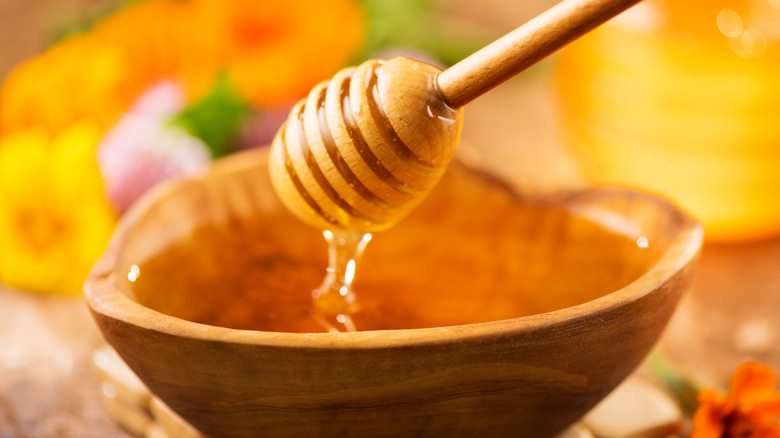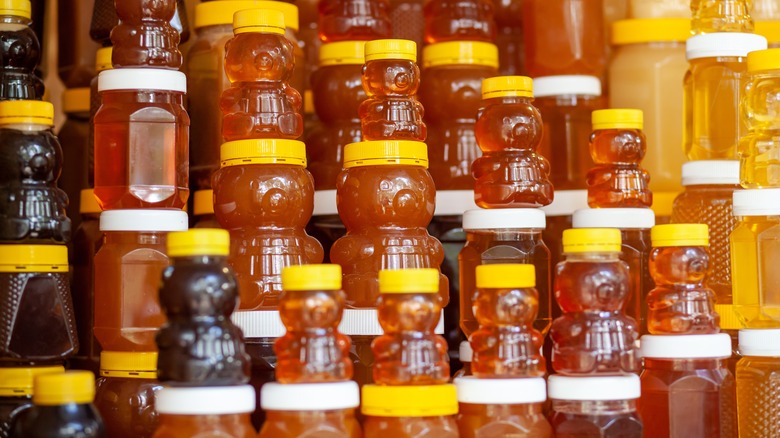The One Type Of Honey You Should Never Use For Flavoring Bread
Honey can be a tricky ingredient to use for baking. As a liquid sweetener, it bakes differently from granulated sugar, typically adding sweetness and changing the texture and flavor. It can also affect the pH of a baked good, as it runs slightly acidic, like buttermilk. And then, there's the odd effect it can have on yeast in your bread-baking.
Since it contains sugars, honey can work to feed your yeast, helping it produce the natural byproduct of carbon dioxide and alcohol. But the ingredient has other qualities that can negatively affect the yeast.
Honey has long been a valued component used for medicinal purposes, since, in its raw form, it is a natural antibacterial agent. However, this means honey can slow the growth of yeast in your bread. But fret not, bakers. You can still make your beloved honey whole wheat dinner rolls — you just need to be using the right honey.
Pasteurized honey or bust
To be clear, wild honey — the kind you can find at farmer's markets and health food stores — is the honey that threatens your yeast. Wild, or raw, honey has been left completely natural, traveling from hive to jar with zero processing.
Instead of using this type, you'll want to reach for the pasteurized variety, which is honey that has been gently heated to kill any yeast, as the microorganism can cause the honey to ferment, thus reducing its shelf stability. But for our purposes, the most important thing that the process does is kill off the ingredient's natural antibacterial components, making it safe for your bread dough's yeast.
Admittedly, pasteurized honey is not as healthy as raw honey, but considering you were going to subject the honey to high heat in the oven anyways, this feels like a moot point when it comes to baking. This is good news for bakers, because honey imparts crucial moisture to your bread's texture, and helps the crust brown to golden perfection. One final bonus? Honey can even help extend the shelf life of your bread, as its acidic nature makes it an inhospitable place for mold to grow.
Most honey sold at grocery stores will note whether they've been pasteurized or not — with the unpasteurized brands typically stamped with the words "raw" and "unfiltered." So, read the labels when you're out shopping. After all, it's better to be safe than sorry when it comes to bread.

